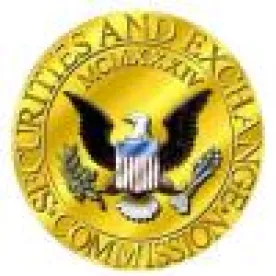The U.S. Securities and Exchange Commission (SEC) recently adopted amendments to modernize Rule 14a-8 under the Securities Exchange Act of 1934, the rule that governs the process for a shareholder to seek inclusion of a proposal in a company’s proxy statement for consideration at an annual or special meeting. These amendments revise:
-
The criteria a shareholder must meet to submit an initial proposal
-
The “one proposal rule” so that it applies to each person rather than each shareholder
-
The levels of shareholder support a proposal must receive to be eligible for resubmission at future shareholder meetings
-
Certain other rules, including those related to the shareholder’s availability to discuss the proposal and the documentation required if a representative will act on the shareholder’s behalf
The amendments will apply to any proposal submitted for an annual or special meeting to be held on or after Jan. 1, 2022.
1. INITIAL SUBMISSION CRITERIA
Rule 14a-8 requires a company that is subject to the federal proxy rules to include shareholder proposals in its proxy statement, subject to certain requirements, including specific minimum ownership thresholds. Prior to the recent amendments, in order to be eligible to make an initial submission of a proposal, a shareholder was required to hold at least $2,000 in market value or one percent of a company’s securities for at least one year. As revised, the ownership criteria are based on three thresholds, which balance the length of ownership against the stake required—the longer the shares have been held, the smaller the ownership stake required. The table below provides a comparison of the criteria prior to the amendments against the criteria as amended.
| Criteria prior to amendments | Criteria as amended |
|---|---|
|
A shareholder must hold at least $2,000 in market value or one percent of a company’s securities for at least one year |
A shareholder must demonstrate continuous ownership of at least:
|
The amendments provide for a transition period that permits shareholders meeting certain conditions to rely on the historical $2,000 or one percent threshold for proposals submitted for an annual or special meeting held prior to Jan. 1, 2023.
The amended rules also prohibit shareholders from aggregating their holdings with other shareholders for the purpose of meeting the ownership thresholds. Shareholders are still permitted to co-file or co-sponsor shareholder proposals as a group if each shareholder in the group meets one of the proposed eligibility requirements.
2. ONE PROPOSAL RULE
The SEC also amended the shareholder proposal rules to provide that “each person,” as opposed to “each stockholder,” may submit no more than one proposal, directly or indirectly, to a company for a particular shareholders’ meeting and that a person may not rely on the securities holdings of another person for the purpose of meeting the eligibility requirements and submitting multiple proposals for a particular meeting. As a result, a shareholder cannot submit one proposal in the shareholder’s own name and simultaneously serve as a representative to submit a different proposal on another shareholder’s behalf for the same meeting. Likewise, a representative cannot submit more than one proposal to be considered at the same meeting, even if the representative were to submit each proposal on behalf of different shareholders.
3. RESUBMISSION THRESHOLDS
The SEC also amended the resubmission thresholds under Rule 14a-8 to increase the level of shareholder support a proposal must receive in order to be eligible for resubmission at future shareholder meetings. As amended, the rules will permit a company to exclude a shareholder proposal from its proxy materials if the proposal addresses substantially the same subject matter as a proposal, or proposals, previously included in the company’s proxy materials within the preceding five calendar years, if the most recent vote occurred within the preceding three calendar years and the most recent vote in favor of the proposal(s) was as follows:
-
Less than five percent of the votes cast if previously voted on once
-
Less than 15 percent of the votes cast if previously voted on twice
-
Less than 25 percent of the votes cast if previously voted on three or more times
The amended thresholds of five, 15 and 25 percent replace the previous thresholds of three, six and 10 percent.
4. OTHER AMENDMENTS TO THE SHAREHOLDER PROPOSAL RULES
The newly amended Rule 14a-8 also includes a shareholder engagement component, requiring a shareholder making a proposal to provide the company with contact information, as well as a written statement that the shareholder is able to meet with the company in person or by teleconference at specified dates and times that are no less than 10 calendar days, nor more than 30 calendar days, after submission of the proposal. This amendment is intended to facilitate dialogue between shareholders and companies in the shareholder-proposal process to lead to more efficient and less costly resolution, but the rule does not impose requirements governing specific engagement activities between the shareholder and the company.
For proposals submitted on behalf of shareholders by a representative, the amended Rule 14a-8(b) also requires the submission of documentation that generally requires basic identifying information about the proposal and the parties, the shareholder’s statement supporting the proposal, and a statement from the shareholder authorizing the designated representative to submit the proposal and otherwise act on the shareholder’s behalf. If the shareholder is an entity, compliance with the amended rule is not necessary if the agent’s authority to act is apparent and self-evident such that a reasonable person would understand that the agent has authority to act (e.g., the CEO of the shareholder).





 />i
/>i
